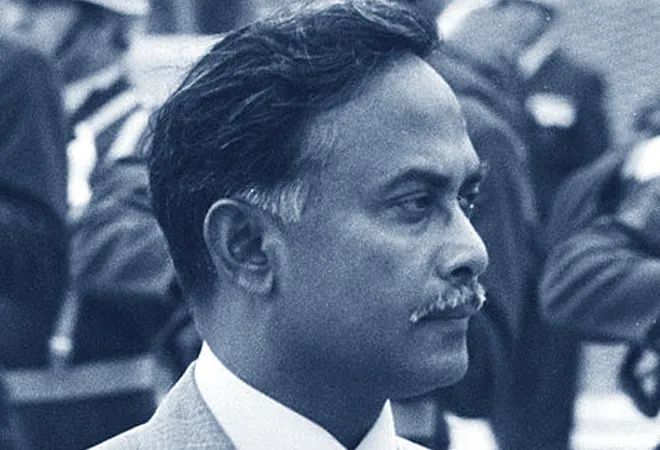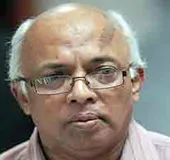
General Ziaur Rahman, Bangladesh’s first military ruler, rose to power through bloodshed and mayhem in November 1975. He survived innumerable abortive coups, eventually succumbing to a putsch in Chittagong on 30 May 1981.
Rahman navigated his way into history books in March 1971. He made a faux pas when he ‘declared’ Bangladesh’s independence despite being a serving major in the Pakistani army. It took several illustrious Bengalis at the time in Chittagong --- A.K. Khan, M.R. Siddiqui and A.R. Mallick --- to have him amend his statement and go forth for a second announcement in the name of Bangabandhu Sheikh Mujibur Rahman. His earlier statement, they were quick to point out to him, would be construed as nothing more than a declaration of mutiny by a mid-ranking officer of the Pakistani army.
It was thus Major Zia’s second announcement, in which he made it clear that the ‘great national leader’ of the Bengalis was none other than Sheikh Mujibur Rahman, that served as a turning point in the early stages of the War of Liberation against Pakistan. It was Zia’s finest hour, one which heralded the beginning of a long twilight struggle for national liberty. It was his moment of fame, those who heard him through the crackle of the Biplobi Betar Kendra knew that resistance to the Pakistanis was underway.
It was thus Major Zia’s second announcement, in which he made it clear that the ‘great national leader’ of the Bengalis was none other than Sheikh Mujibur Rahman, that served as a turning point in the early stages of the War of Liberation against Pakistan.
Zia brought single-minded dedication to his efforts for the Bangladeshi liberation. As commander of the Z Force, he acquitted himself well on the battlefield despite all the obstacles that came his way. He was not the finest soldier in the war, in terms of intellectual abilities or strategic skills. He was however, as patriotic as all his fellow officers during those nine months of blood-drenched struggle. He was stern, with a no-nonsense approach to discipline. He came home from the war, like all other freedom fighters, with his sense of politics and statecraft sharpened in ways that are the fall-out of a revolution.
Zia brought single-minded dedication to his efforts for the Bangladeshi liberation.
Yet, there is and has always been a complex aspect to the Zia character. In 1972, he penned a fulsome article in praise of Sheikh Mujibur Rahman in a leading weekly journal. Four years later, as deputy chief martial law administrator, he loudly intervened in a conversation between President A.S.M. Sayem and an Awami League team led by Mizanur Rahman Chowdhury with the protestation: “Who is a better Awami Leaguer than me? I have transmitted the directives of Bangabandhu from Chittagong radio station.” It was a time when his ambition had got the better of him. He was searching for a place in national politics and looked to the Awami League for support. The support never came. The support was missing because Zia was an indifferent, callous spectator on the morning when a band of unruly soldiers gunned down the Father of the Nation and his family. He was shaving when he was informed of the assassination. “So what?” He asked. “The vice-president is there.” Like many other leading figures of the armed forces on that dark morning, he did not move against the assassins. As the nation would later discover, Zia had known of the conspiracy between the majors and assassins since November 1974. However, he did not inform his chief, General K.M. Shafiullah, or the government about the conspiracy.
Only days after the coup, he found himself in office as the army’s new Chief of Staff. This did not help. The assassin majors and colonels could not be disciplined. Unable to restore the chain of command broken on 15 August 1975, Zia was forced out of his job by Brigadier Khaled Musharraf on 3 November 1975. Four days later, helped by a revolution-obsessed Colonel Abu Taher, he was a free man again, back in authority as Chief of Staff. Khaled Musharraf, along with his associates, were taken out. While the exact circumstances of Musharraf’s murder have never been fully found out, the finger of suspicion has always remained pointed at Zia. A young military officer stationed at the army base where Musharraf had been detained early on 7 November informed Zia of the doomed officer’s presence. Moments later, Khaled Musharraf, Najmul Huda and ATM Haider were killed in cold blood.
Scores of other officers too were killed at the clear directives of Taher. Zia was quick to comprehend the dangers associated with Taher’s misleading concept of a revolutionary army. Zia had fought a guerrilla war against Pakistan in 1971, but he was not, thankfully, willing to fall for Taher’s adventurism in 1975. In the inevitable battle that ensued between the two men, Zia turned out to be the shrewder of the two. Taher lost the struggle and then, lost his life. It was an early instance of Zia’s ruthlessness. The diabolical manner in which Taher was put to death was symbolic of the medieval treachery Zia was willing to employ in his rise to power. It was this cruelty that subsequently manifested itself in October 1977, where thousands of air force and army men were executed through trials that embodied a total failure of the process of justice. Many of these men did not know what their crimes had been. Many of these fallen men had families who would discover two decades later that their fathers/husbands/sons/brothers had been summarily hanged and swiftly buried in nameless graves in Dhaka and Comilla.
The diabolical manner in which Taher was put to death was symbolic of the medieval treachery Zia was willing to employ in his rise to power.
Zia loyalists have consistently informed anyone who would listen that Bangladesh’s first military dictator restored multi-party democracy through the general elections of February 1979. Nothing could be further from the truth. Spurned by the Awami League and other secular parties, Zia needed a political base. That base appeared in the shape of the rightwing elements rejected by the nation in December 1971 for their collaboration with the Pakistan army. Multi-party democracy was not inaugurated by Zia, the rehabilitation of communal politics was --- through the entry of ‘Bangladeshi nationalism’ and an invocation to Allah in the constitution. Between 1975 and 1981, the war hero Ziaur Rahman would turn his back on the ideals of the war he had joined and fought for the cause of Bangladesh’s liberty. He was happy in the company of the peddlers of ‘zindabad’ politics.
Multi-party democracy was not inaugurated by Zia, the rehabilitation of communal politics was --- through the entry of ‘Bangladeshi nationalism’ and an invocation to Allah in the constitution.
General Zia never publicly questioned Bangabandhu’s place in history. In the early part of his presidency, he had some officials of Bangladesh Betar bring him the tape of his 27 March 1971 independence speech. He listened to it a number of times. When a sycophantic radio official suggested that the speech could be edited in any way the general wanted, meaning probably that all references to Bangabandhu could be erased and the speech sanitized for the dictator, Zia coolly told him, and the others present that, “History cannot be changed” and walked out of the room. And yet he went out of his way to airbrush Mujib and the leaders of the Mujibnagar government out of history. In officialese, ‘Pakistan occupation army’ became ‘occupation army’. The chronicles of the times he inhabited would have been different had he not provided protection, through the notorious Indemnity Act, to the assassins of Sheikh Mujibur Rahman and indeed repackage a good number of them as diplomats and send them off to places like Pakistan, Japan and the Middle East.
The career of General Ziaur Rahman was an endless interplay of light and darkness where darkness overwhelmingly dominated light. His voice inspired a fearful nation in late March 1971. His quashing of Taher’s adventurism put a check to disaster and perhaps even prevented a civil war. He brought about a semblance of discipline in the army. That was light.
The career of General Ziaur Rahman was an endless interplay of light and darkness where darkness overwhelmingly dominated light.
And then the darkness took over. His ambitions were overweening. He had no qualms about putting his fellow officers under the guillotine. He left behind a political legacy, one that was a clear veering away from the secular founding principles of Bengali nationhood, that was divisive, the ramifications of which are still being felt all these years after his death.
On 30 May 1981, General Ziaur Rahman died a death, as tragic and gruesome as the deaths to which he had pushed hundreds upon hundreds of officers and men in his years of power. His dictatorship was symbolic of the murder of not just men, but of the history and ideas of a secular Bangladesh.
The views expressed above belong to the author(s). ORF research and analyses now available on Telegram! Click here to access our curated content — blogs, longforms and interviews.




 PREV
PREV

